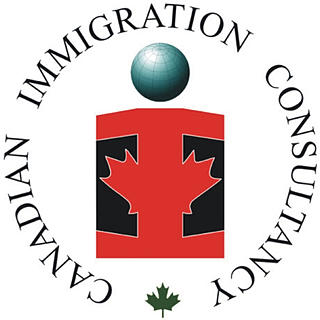Leveraging Study Programs for Immigration to Canada
- cic swisi
- Sep 8, 2025
- 3 min read
Canada is one of the most popular destinations for international students seeking quality education and a pathway to permanent residency. The country offers a variety of study programs that not only provide excellent academic opportunities but also serve as a stepping stone for immigration. Understanding how to leverage these study programs effectively can significantly increase your chances of successfully immigrating to Canada.
Why Choose Study Programs to Study to Immigrate Canada?
Studying in Canada offers more than just an education. It opens doors to work experience, cultural integration, and eventually, permanent residency. Here are some reasons why study programs are a strategic choice for immigration:
Access to Post-Graduation Work Permit (PGWP): After completing a designated program, students can apply for a PGWP, allowing them to work in Canada for up to three years.
Canadian Work Experience: Gaining work experience in Canada improves eligibility for various immigration programs.
Pathway to Permanent Residency: Many provincial nominee programs (PNPs) and the Canadian Experience Class (CEC) favor applicants with Canadian education and work experience.
Cultural Adaptation: Studying in Canada helps students adapt to Canadian society, making the transition to permanent residency smoother.
For those interested in exploring options, the study immigration to canada process is well-documented and supported by numerous resources.

How to Effectively Use Study Programs to Study to Immigrate Canada
To maximize the benefits of studying in Canada for immigration purposes, consider the following steps:
1. Choose the Right Program and Institution
Not all study programs qualify for immigration pathways. It is crucial to select a program that:
Is offered by a Designated Learning Institution (DLI).
Leads to a credential recognized by immigration authorities.
Aligns with your career goals and immigration plans.
For example, programs in technology, healthcare, and business often have better job prospects and immigration pathways.
2. Understand the Duration and Level of Study
Longer programs (at least 8 months) typically qualify for a PGWP. Post-secondary diplomas, bachelor’s degrees, and graduate degrees are preferred for immigration purposes.
3. Maintain Full-Time Student Status
Maintaining full-time enrollment is essential to remain eligible for study permits and future immigration benefits.
4. Gain Canadian Work Experience
While studying, international students can work part-time on or off-campus. After graduation, the PGWP allows full-time work, which is critical for immigration applications.
5. Plan for Provincial Nominee Programs (PNPs)
Many provinces have specific streams for international graduates. Research the PNPs in your province to understand eligibility and application processes.

What are the New Rules for Student Immigration in Canada?
Canada frequently updates its immigration policies to better accommodate international students and align with labor market needs. Some of the recent changes include:
Extended Post-Graduation Work Permit Validity: Certain programs now qualify for longer PGWPs.
Work Hours Flexibility: Students can work more hours during scheduled breaks.
Simplified Application Processes: Streamlined procedures for study permits and work permits.
Enhanced Pathways to Permanent Residency: New pilot programs and expanded eligibility for international graduates.
These changes aim to make Canada more attractive to international students and facilitate their transition to permanent residents.
Tips to Stay Updated
Regularly check official government websites.
Consult with educational institutions’ international student offices.
Engage with immigration consultants or legal experts.

Practical Tips for International Students Planning to Immigrate
To make the most of your study program and immigration prospects, consider these actionable recommendations:
Start Early: Begin your immigration planning before arriving in Canada.
Keep Records: Maintain detailed records of your academic and work history.
Network: Build connections with professionals and communities in your field.
Improve Language Skills: Strong English or French proficiency enhances your immigration profile.
Seek Professional Advice: Use authorized consultants or legal experts to navigate complex immigration rules.
Exploring Alternative Immigration Pathways After Study
While study programs provide a strong foundation, there are other immigration options to consider post-graduation:
Canadian Experience Class (CEC): For those with Canadian work experience.
Federal Skilled Worker Program (FSWP): For skilled professionals.
Provincial Nominee Programs (PNPs): Tailored to provincial labor needs.
Atlantic Immigration Pilot: For graduates in Atlantic provinces.
Understanding these options helps you create a comprehensive immigration strategy.
Taking the Next Step in Your Canadian Journey
Studying in Canada is a powerful way to build a future in the country. By carefully selecting your program, understanding immigration rules, and actively engaging in work and community life, you can turn your educational experience into permanent residency.
For detailed guidance on how to navigate the process, visit the study immigration to canada resource. It offers step-by-step instructions and valuable tips to help you succeed.
Embarking on this journey requires preparation, patience, and persistence, but the rewards of living and working in Canada are well worth the effort. Start planning today to make your Canadian dream a reality.





Comments